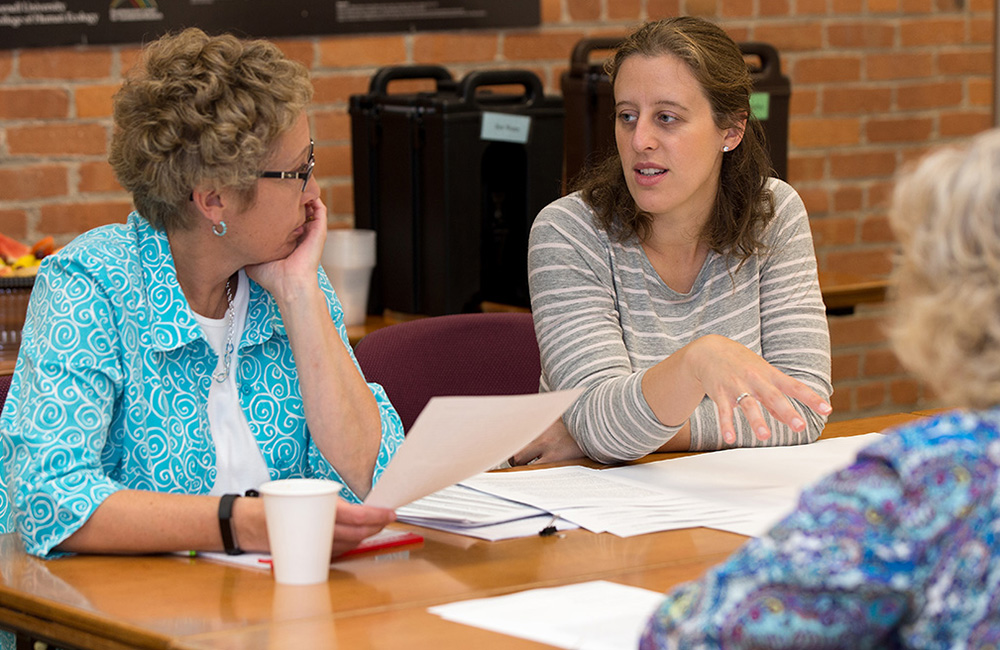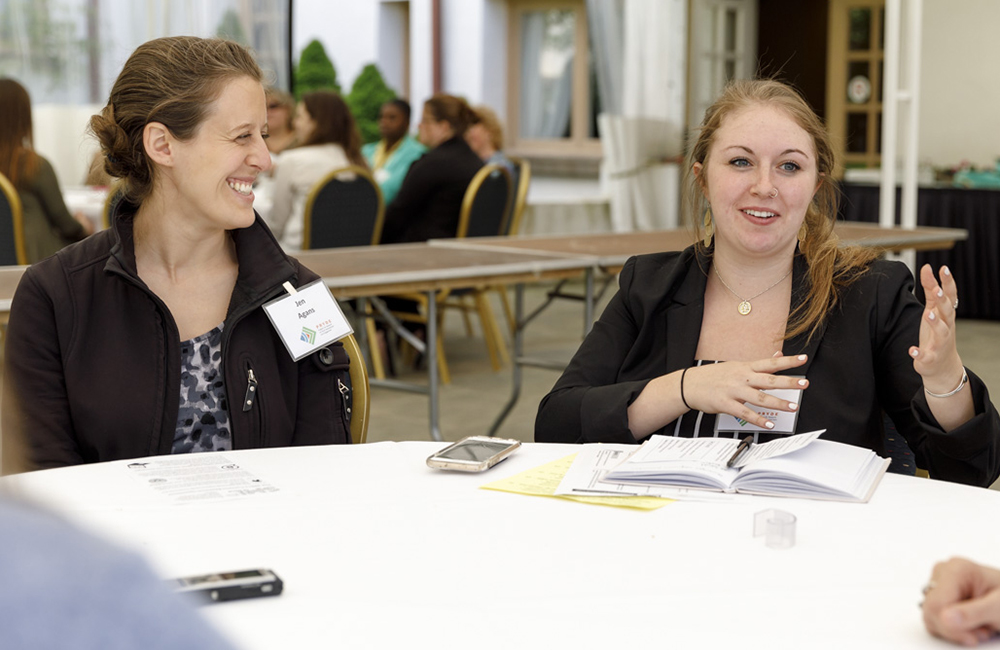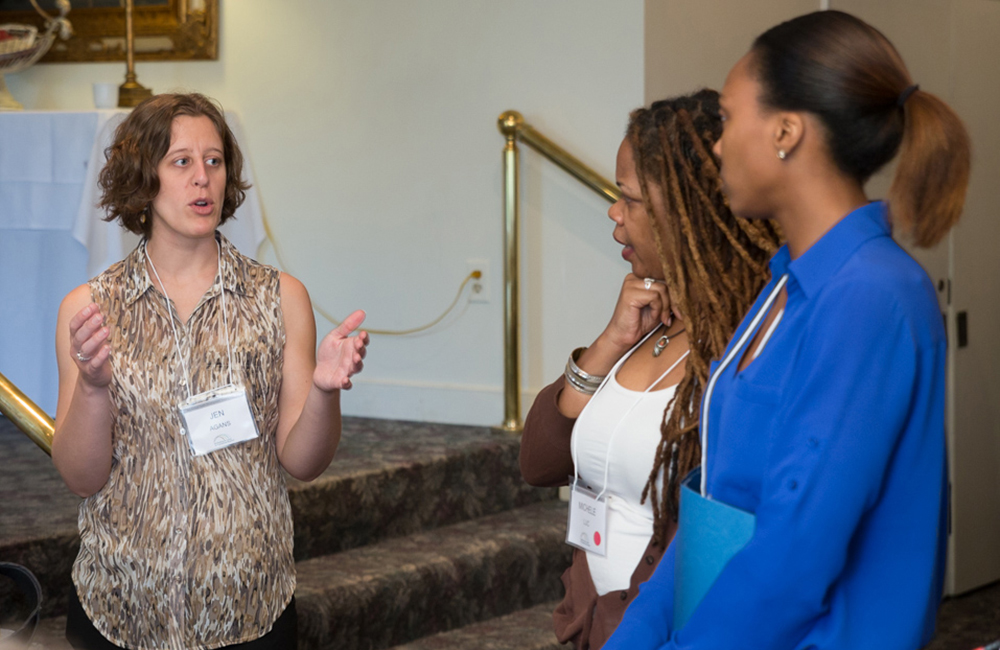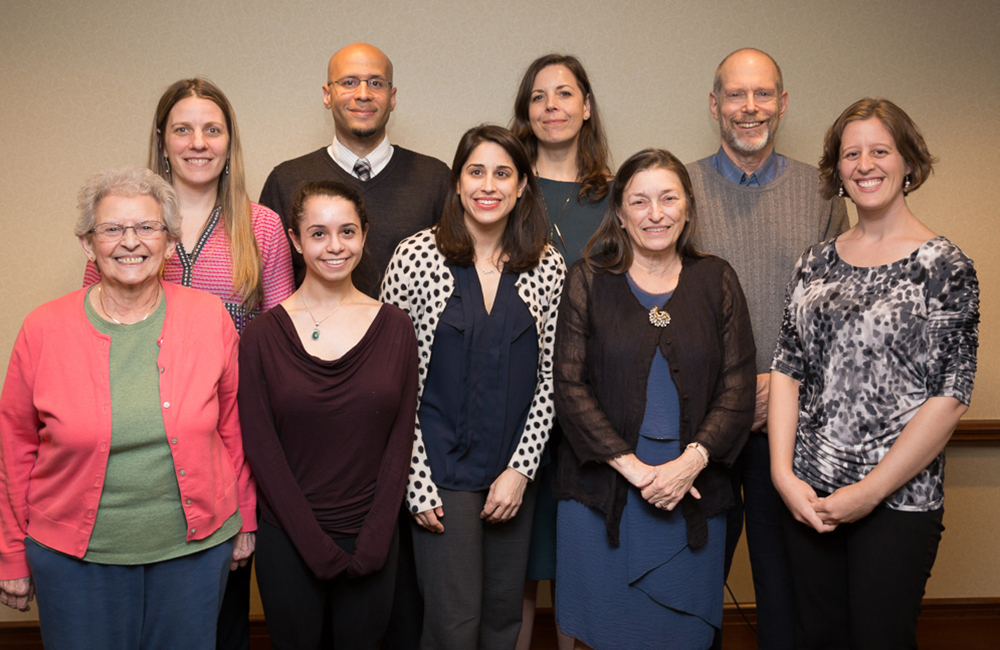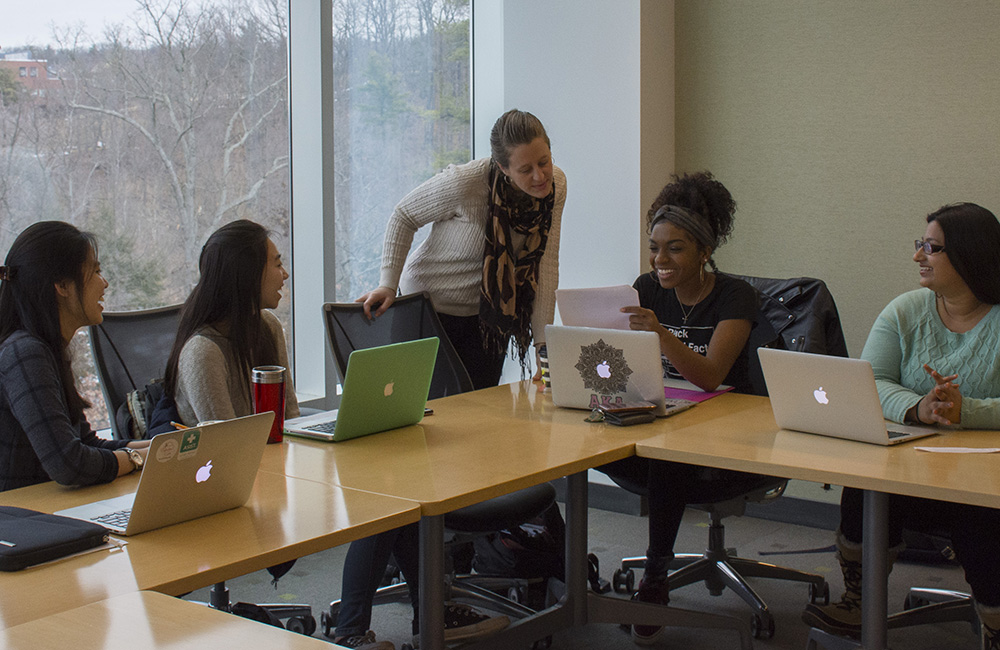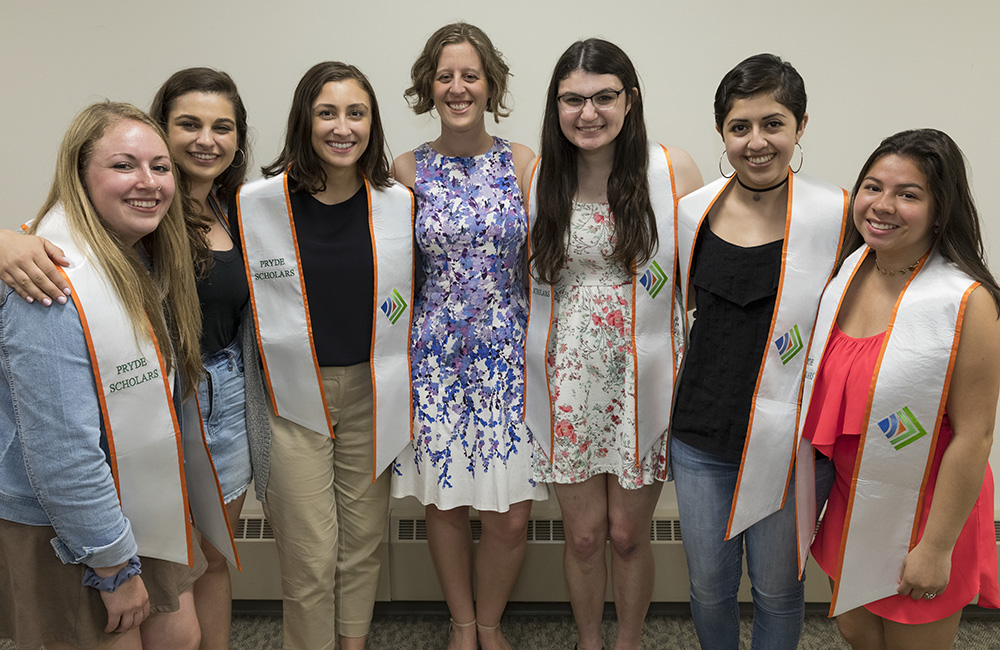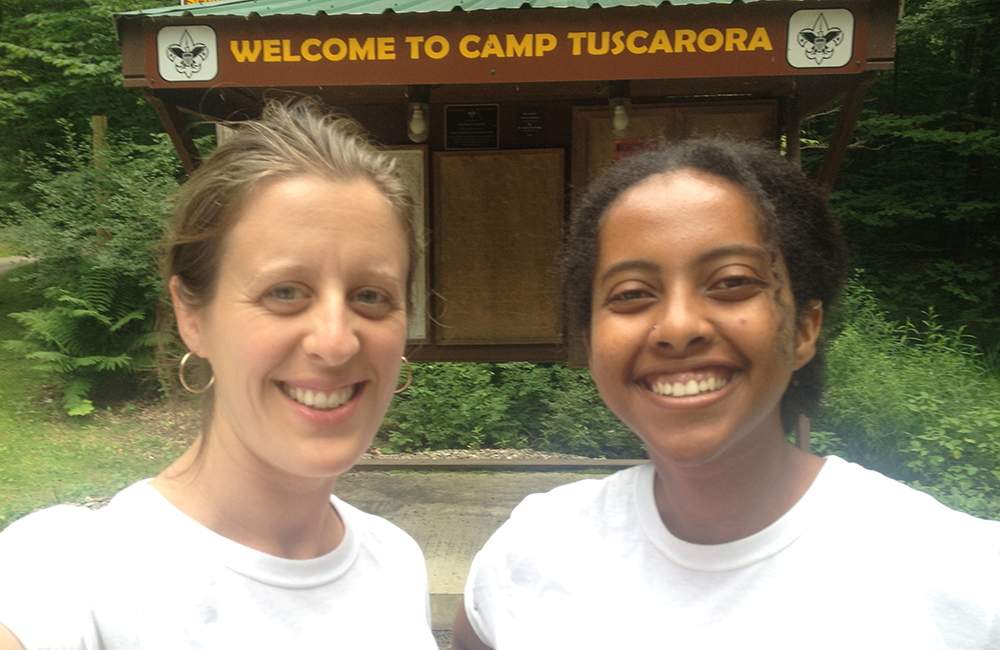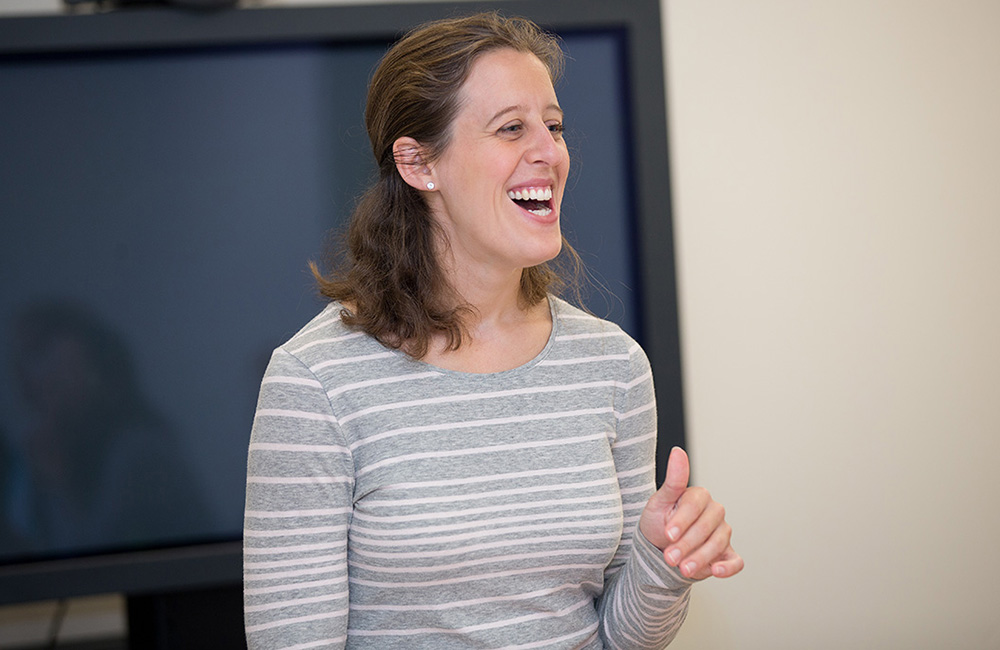Relationships: The true power of PRYDE
By Jennifer Agans, PRYDE assistant director
In the spring of 2015, when I was nervously trying to find a post-grad-school job, I knew I wanted to do something that would enable me to connect with youth development practitioners and conduct research that was useful to them. After all, trying to answer questions that arose in the youth program I ran was what led me to graduate school in the first place. I never imagined, however, that accepting a one-year postdoc with a program that didn’t even really exist yet would provide me with so many invaluable opportunities and connect me with so many people doing such meaningful work.
I came to Cornell and to the Cornell Cooperative Extension (CCE) 4-H system with an open mind (read: clueless) and a naïve belief that the solutions to problems older than I was were just around the corner. Over the course of my first semester with PRYDE, I slowly came to realize that while each translational research project may seem straight-forward, fostering research-practice collaborations at the system level would require taking a step back before jumping straight to solutions. Just like any new program, PRYDE first had to conduct a needs assessment to make sure the products we were designing would be useful and effective. Of course, like many programs, we also started operations at the same time (“building the plane while flying it” as PRYDE Co-Director Karl Pillemer frequently said), learning from our mistakes on the ground as we collected data to help us understand the bigger picture. In the process, I learned an immense amount about the complex inner workings of Cornell University and the CCE 4-H system, drove thousands of miles to meet with practitioners and collect data from youth, and almost memorized the county map of New York State.
The most amazing thing, though, was the literally hundreds of people across New York State who were supportive, kind, and generous with their time and expertise. Within the 4-H system there were meeting organizers who moved schedules around to arrange my county visits, statewide conference attendees who welcomed me and introduced me to their friends and colleagues, 4-H Educators who I emailed out of the blue who responded to my requests for their involvement, state-level administrators who invited me to participate in events and host webinars, the list could go on and on. In addition, although I felt the most enthusiasm for PRYDE from the 4-H system, I found kindred spirits in this work all over Cornell and all over New York State. Although not all of these connections led to any particular project or output, they all contributed to the general sense that PRYDE was doing something right, that we were headed in the right direction.
Over the years, as PRYDE grew, I wrote some funded grants and published some academic articles. These are the established currency of the academic world, and I am happy with those accomplishments. However, my work with PRYDE has also enabled me to teach and mentor two cohorts of passionate and dedicated undergraduate PRYDE Scholars, work with faculty who truly care about the impact of their work on local communities, and build close relationships with 4-H partners across the state. These interpersonal connections are not as easy to measure (how do you quantify the sense of delight when seeing the familiar faces of so many valued colleagues at a state-wide event?) but they are much more meaningful. I believe this re-ordering of values is the true power of translational and applied research: prioritizing relationships over products both improves the work and makes it more enjoyable and personally meaningful as well.
Now, as I wrap up my time with PRYDE and move on to the next step in my career (I am joining the faculty in Recreation, Park, and Tourism Management at Penn State), I am so incredibly proud of how far we have come. With regard to PRYDE’s mission of fostering capacity for mutually-beneficial research-practice partnerships to support youth across New York State there is still a lot of work to do. But we have laid a strong foundation, built through the goodwill and passion of so many people, and developed a network of relationships whose impact can be exponential. I can’t wait to see what PRYDE becomes as it continues to bring researchers and practitioners together to improve the lives of youth.
It has undoubtedly improved mine.

